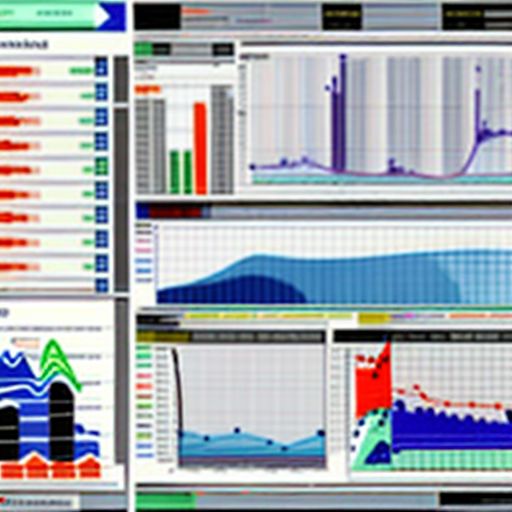In today’s digital age, managing finances efficiently is crucial for any business’s success. Gone are the days of cumbersome spreadsheets and manual processes. Enter Enterprise Resource Planning (ERP) systems, specifically designed with robust accounting software to streamline financial operations. But with a plethora of options available, how do you choose the Best Erp Accounting Software for your business?
This comprehensive guide will navigate you through the intricacies of ERP accounting software, equipping you with the knowledge to make an informed decision.
Understanding ERP Accounting Software
What is ERP Accounting Software?
ERP accounting software is a specialized module within a broader ERP system that automates and integrates core accounting functions such as:
- Accounts Payable (AP): Managing outgoing payments to vendors.
- Accounts Receivable (AR): Tracking incoming payments from customers.
- General Ledger: Recording all financial transactions.
- Financial Reporting: Generating comprehensive financial statements (balance sheets, income statements, cash flow statements).
- Budgeting and Forecasting: Planning and tracking financial performance.
Why is ERP Accounting Software Important?
The importance of ERP accounting software lies in its ability to:
- Improve accuracy and reduce errors: Automating tasks minimizes manual data entry, minimizing costly mistakes.
- Enhance efficiency and productivity: Streamlined processes allow finance teams to focus on strategic tasks rather than repetitive manual work.
- Provide real-time financial visibility: Access to up-to-date financial data enables informed decision-making.
- Facilitate compliance: Many ERP systems include features that ensure compliance with financial regulations.
Key Considerations When Choosing ERP Accounting Software
1. Business Size and Requirements
The ideal ERP accounting software should align with your business size and specific industry needs.
- Small Businesses: May opt for cloud-based solutions with basic features and affordable pricing.
- Medium-Sized Businesses: Might require more advanced features such as inventory management and project accounting.
- Large Enterprises: Often benefit from comprehensive, customizable solutions that integrate with existing systems.
2. Deployment Options: Cloud vs. On-Premise
- Cloud-based ERP: Offers flexibility, scalability, and affordability with subscription-based pricing.
- On-Premise ERP: Provides greater control and customization but often requires significant upfront investment and IT infrastructure.
3. Features and Functionality
Essential features to consider:
- Core Accounting Features: AP, AR, general ledger, financial reporting.
- Industry-Specific Features: For example, retail businesses may require point-of-sale (POS) integration.
- Scalability and Customization: Ensure the software can grow with your business and adapt to changing requirements.
4. Integration Capabilities
Seamless integration with existing business systems such as CRM and e-commerce platforms is crucial for data consistency and efficient workflows.
5. Vendor Reputation and Support
Choose a reputable vendor with a proven track record of providing reliable software and excellent customer support.
Frequently Asked Questions about ERP Accounting Software
1. What is the difference between accounting software and ERP accounting software?
Traditional accounting software focuses primarily on core accounting tasks, while ERP accounting software is a module within a larger ERP system offering a broader range of integrated business management functionalities.
2. How much does ERP accounting software cost?
The cost varies depending on factors such as deployment option, features, number of users, and vendor pricing.
3. Can ERP accounting software help with financial reporting?
Yes, ERP accounting software typically includes robust reporting tools to generate customized financial statements for analysis and decision-making.
erp.backinhtravel.com/wp-content/uploads/2024/07/erp-accounting-software-dashboard-669a41.jpg" alt="Modern ERP accounting software dashboard with charts and graphs" width="512" height="512">Modern ERP accounting software dashboard with charts and graphs
Conclusion
Selecting the best ERP accounting software requires careful consideration of your business’s unique needs, budget, and long-term goals. By evaluating factors such as features, deployment options, vendor reputation, and integration capabilities, you can make an informed decision that empowers your business with streamlined financial operations, improved accuracy, and enhanced decision-making.
We encourage you to share your thoughts and experiences with ERP accounting software in the comments below. Have questions or need further assistance? Don’t hesitate to contact us!
